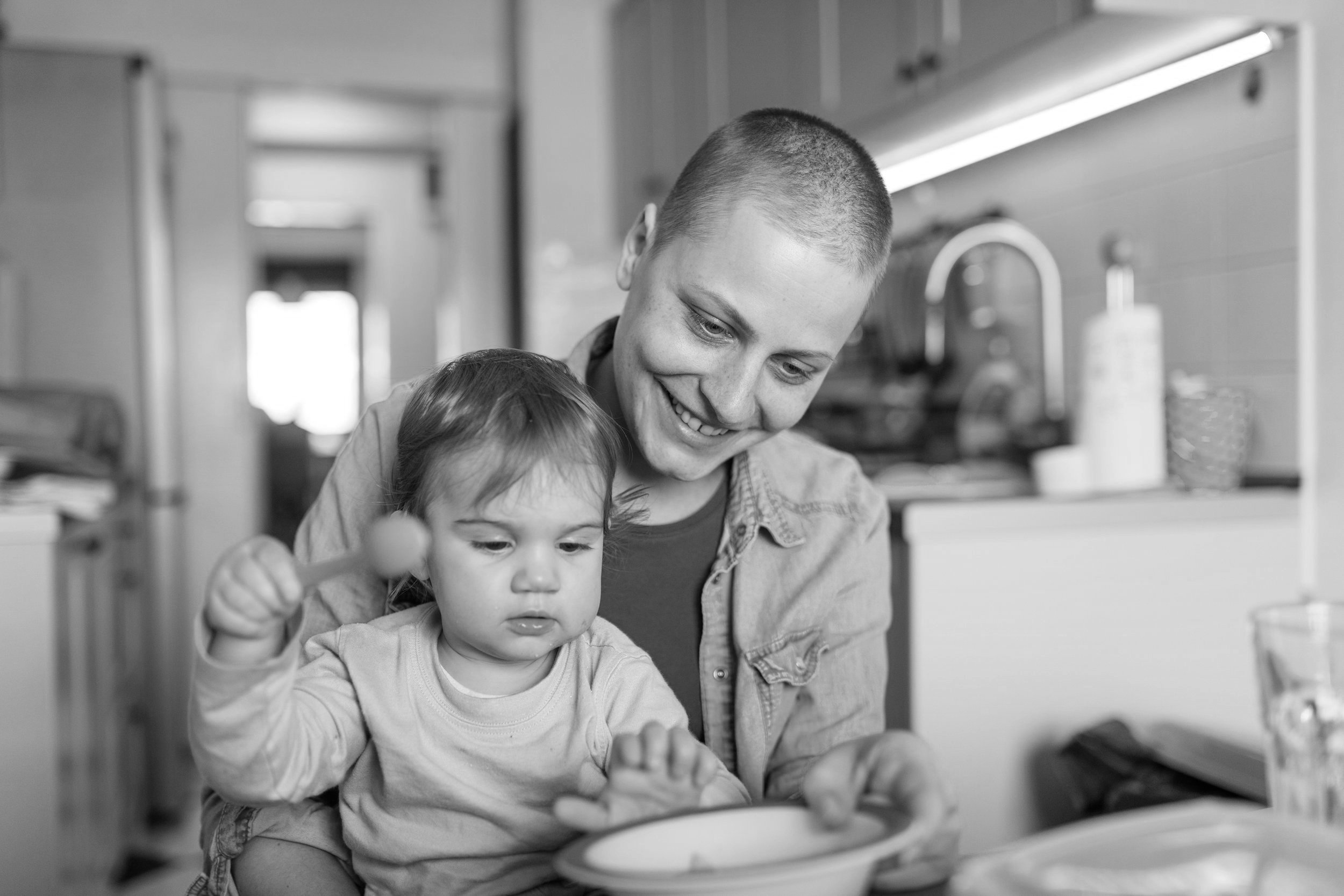
Surgery
If your cancer treatment includes surgical intervention the information below provides some basic information on what to expect in relation to your infant feeding options.
We are not the experts and recommend speaking to your health care professional for further advice.
What impact will my surgery have on feeding my baby?
The type of surgery you need will depend on your diagnosis. Some women may need just one procedure whilst others may require multiple. As with everything else on this journey, every woman is different, so talking to your oncologist and surgeon is the first port of call. They will be able to advise you on the specifics of your own personal situation, and how this may impact your ability to breastfeed.
The main surgical factors that that will impact your ability to breastfeed are the type of anaesthetic required, any other medications you may need, the site of the surgical procedure and your recovery.
Breast surgery has particular impacts on breastfeeding, which we provide more detail on in our breast cancer page. Other surgical procedures may affect your ability to hold your baby to get an appropriate latch. You can try different feeding holds to see which is the most comfortable, and use feeding pillows for support.
Anaesthesia and breastfeeding
An anaesthetic is a medication that blocks pain. It can be given at the area being operated on - a local anaesthetic - and you will remain conscious for your procedure. Alternatively, for more serious surgeries, anaesthesia can be given systemically so that you are unconscious and unaware throughout the operation, or as people call it, you are “put to sleep”.
Your anaesthatist will do a preoperative check with you and this is a good time to talk with them about your infant feeding choices for the day of surgery, and the impact the medications will have on your milk.
In general, all else being well, an anaesthetic should not impact your ability to feed your baby as soon as you wake up from your procedure and feel up to it.
The Association of Anaesthetists reviewed the impcat of anaesthesia on breastfeeding in 2020 and their top two take home messages are:
You can breastfeed as normal following surgery.
There is no need to pump & dump after anaesthesia.
As a wee side note, if you are nervous about anaesthesia (you’ve maybe heard horror stories about being aware of what’s happening but not able to alert the surgeon) we highly recommend you listen to Dr Anne Doherty on the Laura Dowling Experience podcast. An experienced anaesthatist, Dr Doherty explains the ins and outs of ‘going under’ and makes a scary situation a lot less so.
Can my baby come into hospital with me?
There is no national policy on allowing infants into hospitals in order to breastfeed but there are hospitals who have adopted local policies. These usually follow a similar script; the infant needs to be under the age of 6 months and there is a responsible adult who can care for the baby when in hospital other than you. The parent will usually have to sign a consent form, acknowledging the risks of infants being in hospital, those mainly being infection. The Hospital Infant Feeding Network is currently running a national campaign advocating for mums and babies to be kept together in hospital, which we fully support.
What are my options on the day of surgery?
If you are having a general anaesthetic you will need to fast on the morning of your surgery. If you are breastfeeding, your surgical team will take this into consideration. Try and aim to feed your baby before going into surgery as close as your surgical team can arrange. This will mean you are less likely to become engorged, and your baby is not going without. Depending on how long your procedure and recovery is, and how old your baby is, your baby may require an alternative feeding source.
So, what are my feeding options?
If your surgery and recovery is likely to be lengthy, or you feel you would prefer not to breastfeed after surgery, you have an option to stock up your own milk prior to surgery. The stored breastmilk can be used afterwards. Other feeding options are donor breast milk and formula milk. You can feed your baby any combination of your own expressed milk, donor breastmilk or formula milk. Starting with one option and changing to another is also completely okay for your baby.
Where can I find out more?
Your oncologist will be able to give you more details about your feeding options based on your individual treatment regime. However, not all oncologists will have specialist knowledge in infant feeding. Likewise, lactation or infant feeding consultants can support infant feeding but, like us, do not have specialised knowledge on surgery, anaesthesia and their effects.
You can seek more specific information from specialist organisations.
Mummy’s Star is an independent organisation to help women with cancer who are pregnant or who have babies, and their families. Their website has lots of peer support and facts on aspects of your care. Mummy’s Star also provide information for healthcare workers who are supporting Mums living with cancer.
Macmillan are a cancer charity who work with Mummy’s Star and provide information on infant feeding while living with cancer.
Pharmacist Wendy Jones provides excellent information on taking medication while breastfeeding. Although her factsheets do not cover chemotherapy drugs specifically, Wendy provides information on many additional medications you may take during your treatment.
Our thanks to Dr Jim Parry, Specialty Trainee in Medical Oncology.






